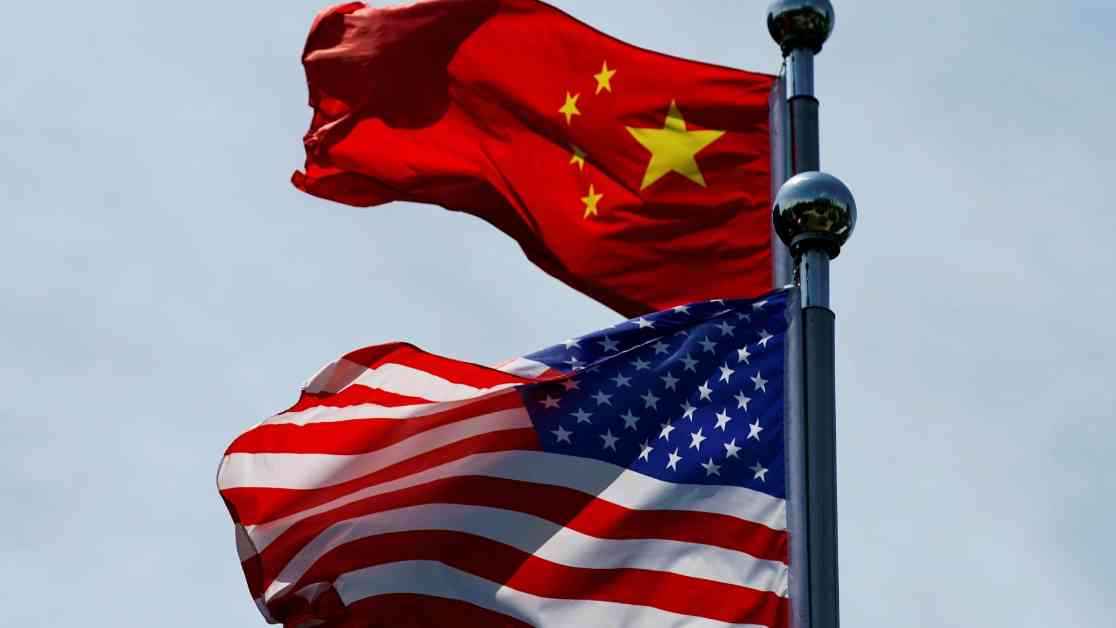Summary: China announced on March 10th that it would impose additional tariffs of up to 15% on certain U.S. goods and restrict exports to 15 U.S. companies. These retaliatory measures were in response to new U.S. tariffs on Chinese goods, affecting items like corn and soybeans. The relationship between the two countries is tense, with China vowing not to accept pressure or threats from the U.S. Despite warnings from Beijing, the U.S. moved forward with implementing new tariffs, leading to further strain on trade relations.
China Imposes New Tariffs on U.S. Goods, Straining Trade Relations
Amidst fluttering Chinese and U.S. flags near The Bund in Shanghai, China, tensions between the two economic powerhouses escalated as China announced additional tariffs of up to 15% on select U.S. goods and imposed export restrictions on 15 U.S. companies. The retaliatory measures, announced by China’s Ministry of Finance and Ministry of Commerce, were a direct response to the U.S. enacting new tariffs on Chinese goods.
New Tariffs Hit U.S. Agricultural Goods
The latest round of Chinese tariffs predominantly targeted U.S. agricultural products, with corn and soybeans facing duties of 15% and 10%, respectively. This move significantly impacts American farmers who rely on exports to China for their livelihood. In addition to the tariffs, China also imposed export controls on companies like Leidos and General Dynamics Land Systems, further complicating trade relations between the two nations.
Lou Qinjian, a spokesperson for the National People’s Congress, emphasized that while disagreements between China and the U.S. are inevitable, China would not tolerate being pressured or threatened. This statement underscores the delicate balance of power and diplomacy at play in the global economic landscape, where trade disputes can have far-reaching consequences.
Escalating Trade War Concerns
As the White House confirmed the imposition of new tariffs on Chinese goods, tensions between the two countries continued to rise. With the total amount of new tariffs reaching 20% in just a month, the impact on both economies is becoming increasingly pronounced. The Ministry of Commerce in China firmly rejected the additional U.S. tariffs and vowed to take countermeasures to protect its interests.
Frederique Carrier, head of investment strategy at RBC Wealth Management, warned of the risks associated with trade wars, highlighting the potential for retaliation and escalation. She noted that countries like China, Canada, and Mexico could respond with targeted measures to express their displeasure at the tariffs imposed by the U.S. This tit-for-tat dynamic underscores the fragile nature of international trade relationships and the need for careful navigation of trade policies.
Uncertain Future for U.S.-China Trade Relations
With the average effective U.S. tariff rate on Chinese goods expected to reach 33%, the economic landscape between the two countries is shifting dramatically. China’s consideration of retaliatory tariffs on U.S. agricultural products further clouds the outlook for trade relations. As soybeans, oil, and pharmaceuticals rank among the top U.S. exports to China, the implications of these tariffs extend beyond economic considerations to geopolitical and strategic dimensions.
Despite the ongoing tensions, both China and the U.S. face complex decisions regarding trade policy and diplomatic maneuvers. The delicate dance of tariffs and countermeasures underscores the interdependence of the global economy and the need for nuanced approaches to resolving trade disputes. As the trade war between China and the U.S. unfolds, the world watches with bated breath to see how these economic giants navigate the turbulent waters of international trade.

















